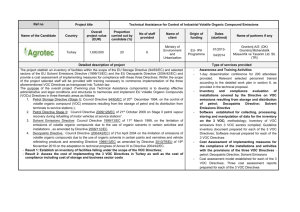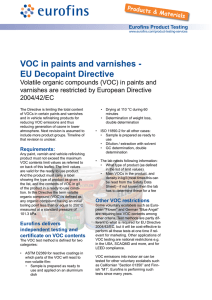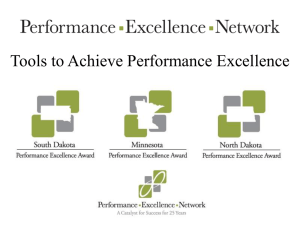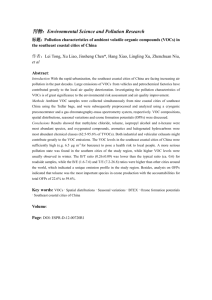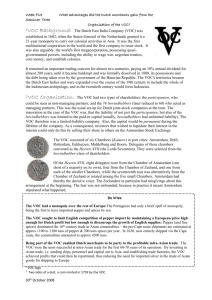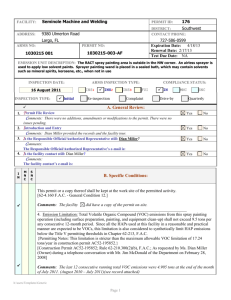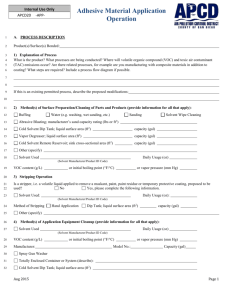on the implementation of the European VOC-Directive in
advertisement
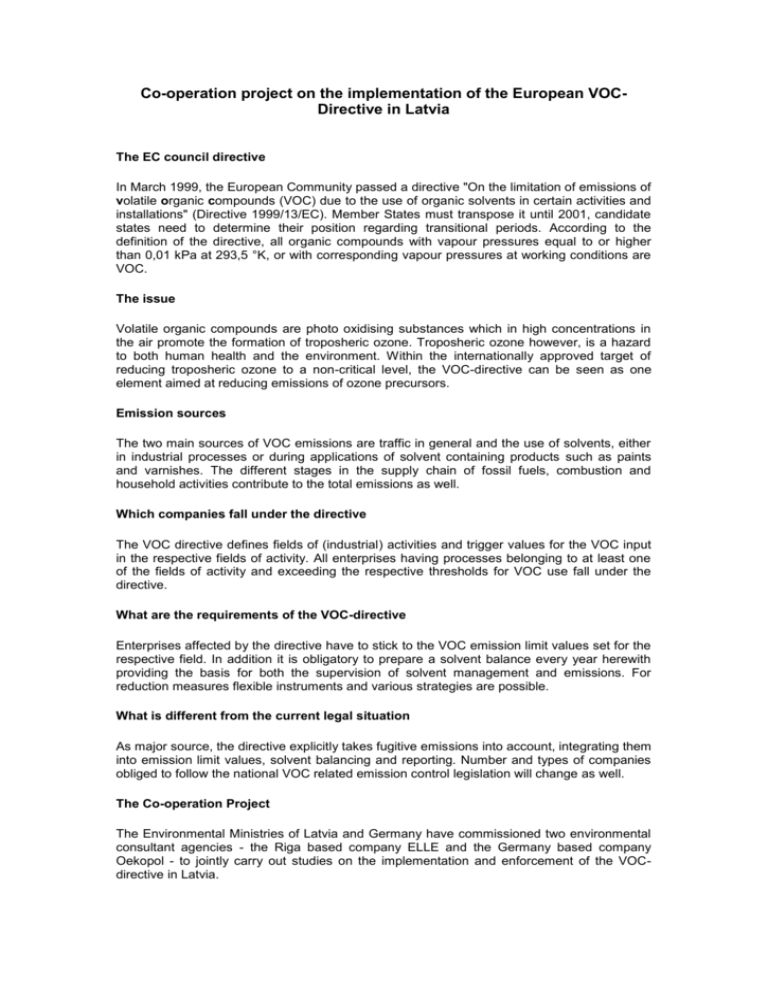
Co-operation project on the implementation of the European VOCDirective in Latvia The EC council directive In March 1999, the European Community passed a directive "On the limitation of emissions of volatile organic compounds (VOC) due to the use of organic solvents in certain activities and installations" (Directive 1999/13/EC). Member States must transpose it until 2001, candidate states need to determine their position regarding transitional periods. According to the definition of the directive, all organic compounds with vapour pressures equal to or higher than 0,01 kPa at 293,5 °K, or with corresponding vapour pressures at working conditions are VOC. The issue Volatile organic compounds are photo oxidising substances which in high concentrations in the air promote the formation of troposheric ozone. Troposheric ozone however, is a hazard to both human health and the environment. Within the internationally approved target of reducing troposheric ozone to a non-critical level, the VOC-directive can be seen as one element aimed at reducing emissions of ozone precursors. Emission sources The two main sources of VOC emissions are traffic in general and the use of solvents, either in industrial processes or during applications of solvent containing products such as paints and varnishes. The different stages in the supply chain of fossil fuels, combustion and household activities contribute to the total emissions as well. Which companies fall under the directive The VOC directive defines fields of (industrial) activities and trigger values for the VOC input in the respective fields of activity. All enterprises having processes belonging to at least one of the fields of activity and exceeding the respective thresholds for VOC use fall under the directive. What are the requirements of the VOC-directive Enterprises affected by the directive have to stick to the VOC emission limit values set for the respective field. In addition it is obligatory to prepare a solvent balance every year herewith providing the basis for both the supervision of solvent management and emissions. For reduction measures flexible instruments and various strategies are possible. What is different from the current legal situation As major source, the directive explicitly takes fugitive emissions into account, integrating them into emission limit values, solvent balancing and reporting. Number and types of companies obliged to follow the national VOC related emission control legislation will change as well. The Co-operation Project The Environmental Ministries of Latvia and Germany have commissioned two environmental consultant agencies - the Riga based company ELLE and the Germany based company Oekopol - to jointly carry out studies on the implementation and enforcement of the VOCdirective in Latvia. Objectives The project's main objective is to support the Latvian Government in transposing and implementing the VOC directive in Latvia. The integration of relevant actors in this process is found very important in order to early reflect the practicability of planned regulations, reduction measures, political and economic instruments as well as reduction targets. The working process Apart from organising a fruitful discourse on the transposition and implementation of the VOCdirective, working on the legal framework and improving the existing data basis, pilot studies in selected industrial sectors will be carried out. Analysing possibilities for VOC reduction measures on the technical and management level including cost estimates. The development of training courses for capacity building in environmental administrations and in companies is also part of the project. Expected outcome and timeframe Expected outcome VOC inventory based on available statistics by when November 2000 International workshop on VOC Directive implementation strategy November 2000 Preliminary draft of legislative frame December 2000 Initial proposal for the improvement of the existing tracking system December 2000 Selection of exemplary industrial sectors, data collection in 5-8 enterprises April 2001 Preliminary cost estimates and proposal for transitional period June 2001 Solvent balancing and evaluation of options for VOC reduction in 5-8 companies September 2001 Draft regulation November 2001 Written guidance on and solvent management tools for 2 sectors and February 2002 Training courses for inspectors and enterprises on the requirements of the Latvian legislation and solvent balancing April 2002 Final report September 2002 Contact: Latvia: ELLE - Estonian, Latvian & Lithuanian Environment Evija Brante phone: - 371 7027697 (until 31.08.2001.) Ministry of Environment of the Republic of Latvia Armands Plate phone: -371 7026509 Germany: Ökopol GmbH- Institute for environmental strategies Dirk Jepsen and Antonia Reihlen phone: 0049-40391002-0 Umweltbundesamt Frau Böttcher Tiedemann phone: 0049-3089033020

